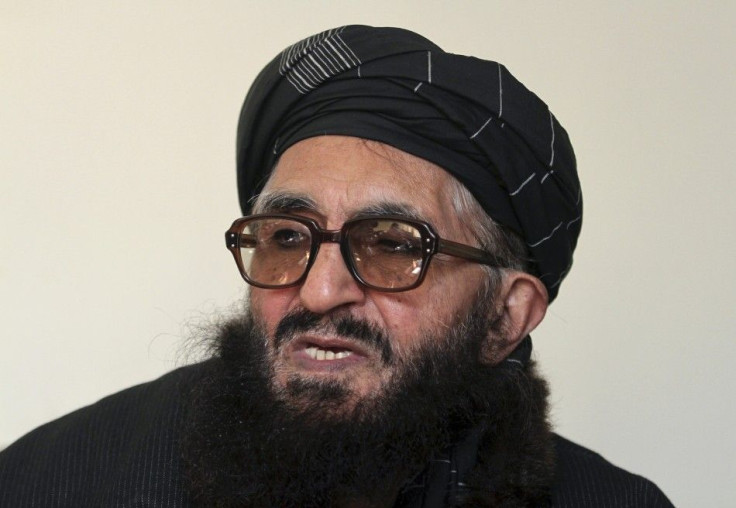Senior Afghan Peace Negotiator Assassinated In Kabul

Gunmen shot dead a top Afghan peace negotiator in Kabul on Sunday, dealing another blow to the country's attempts to negotiate a peace deal with the Taliban.
Maulvi Arsala Rahmani, 68, was one of the most senior and important members on Afghanistan's High Peace Council, set up by President Hamid Karzai two years ago to negotiate with the insurgents.
He was stuck in heavy traffic when another car beside him opened fire, Gen. Mohammad Zahir, head of Kabul police's investigation unit, told Reuters. No suspect was arrested.
The victim's grandson, Mohammad Wares, told the Guardian that a white car pulled up next to Rahmani's SUV in traffic around 8:30 a.m. A hand with a pistol reached out, and Rahmani's bodyguard turned round to see Rahmani collapse, bleeding from the chest.
There was only one bullet. They shot him through the small back window, Wares said. They took him to the hospital, but he passed away there.
The Taliban denied involvement in the killing of Rahmani, a defector from the Taliban who retained strong ties to the movement.
Others are involved in this, the group's spokesman Zabihullah Mujahid said, adding: We don't believe it's a big blow to peace efforts because the peace council has achieved nothing.
But diplomats said the Taliban had the most immediate motive for targeting someone who was a figurehead for government efforts to negotiate.
The obvious message is that there is no way of relating to the Taliban other than through their formal channels, the political committee and the leadership, one senior diplomat told the Guardian. I don't think its because he'd tried anything spectacular, I think it's more that he is considered a traitor.
Rahmani was one of several former members of the Taliban who were removed from a UN blacklist in July 2011, eliminating a travel ban and an assets freeze in a move seen as key to promoting the peace effort. A frail man from Paktika province with a wispy black beard and thick glasses, he was on his way to meet lawmakers and other officials in a government-run media center in the heavily barricaded diplomatic center of Kabul when he was shot.
Rahmani's killing is a huge loss for Afghanistan but will not deter us from our efforts for lasting peace, Karzai's chief spokesman Aimal Faizi told a press briefing.
NATO forces fighting in Afghanistan and the U.S. Embassy in Kabul also condemned Rahmani's assassination.
The 70-member High Peace Council appears to have made little progress in negotiating with the Taliban to end a war now in its 11th year.
Its head, former President Burhanuddin Rabbani, was assassinated by a suicide bomber last September. He was recently replaced by his son Salahuddin, although analysts say the council is ineffective or even dysfunctional.
Last month a suicide bomber killed the head of a regional peace council in the eastern province of Kunar.
Rahmani told Reuters at the start of the year that he was optimistic that secret peace talks with the Taliban had a good chance of success, and that the Taliban were ready to moderate their fundamentalist positions.
U.S. diplomats have separately engaged the Taliban in secret discussions abroad leading to an agreement on the establishment of a Taliban office in the Gulf state of Qatar, though the Taliban later suspended the talks, accusing Washington of ignoring their demands.
Fear is mounting among locals and foreign governments that Afghanistan could be engulfed in turmoil after the pullout of NATO combat troops by the end of 2014 and national elections the same year.
The killing came hours before Karzai announced the start of the third phase of a gradual security handover to the Afghan police and army, designed to pave the way for all foreign soldiers to return home by the end of 2014.
The extension included challenging areas such as the city of Kandahar, once the Taliban's main center of power, and in theory puts the capitals of all Afghanistan's provinces under the control of the national army and police.
The announcement was welcomed as a sign of progress by the army and police, which have been expanding rapidly and long struggled to deal with a host of problems ranging from rampant drug abuse to corruption and high levels of attrition.
Nato's senior civilian representative in Afghanistan, Simon Gass, said: [This] has been enabled by the great strides made by the Afghan national security forces who have repeatedly shown their ability to maintain security.
It means that officially three-quarters of Afghans will live in areas controlled by their own security forces. But the actual handover can take up to 18 months, making the transition as much aspiration as achievement.
© Copyright IBTimes 2024. All rights reserved.





















